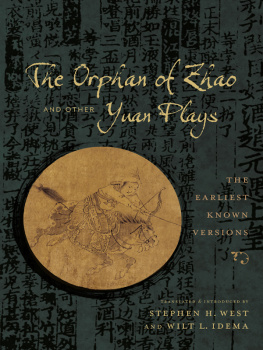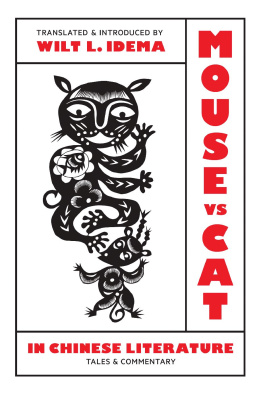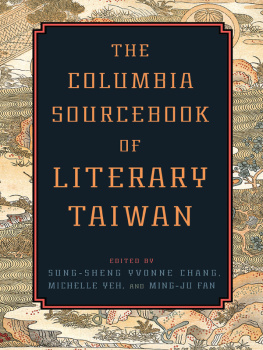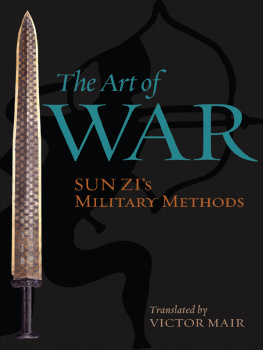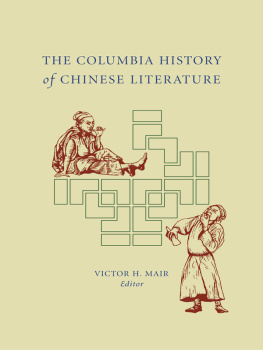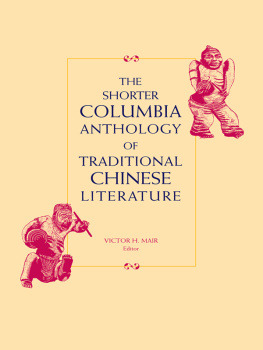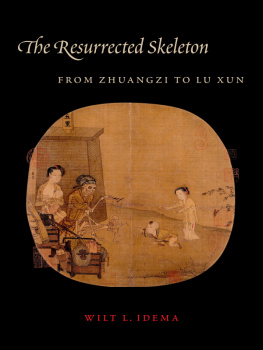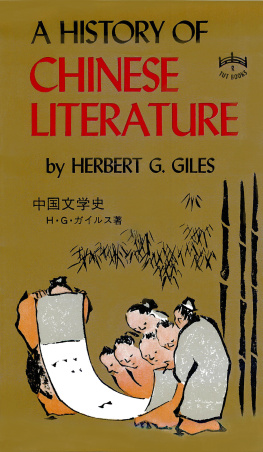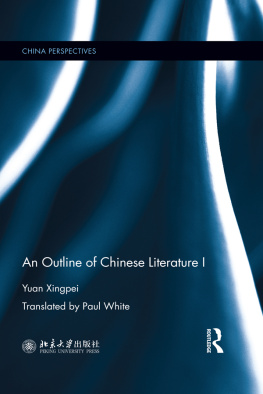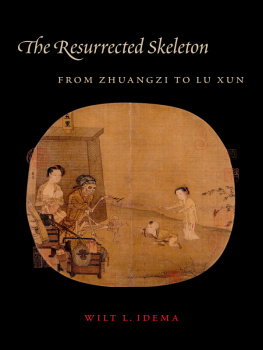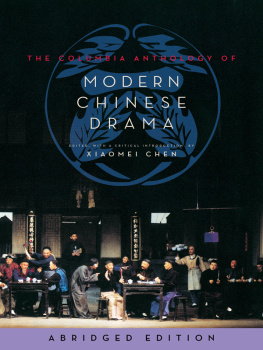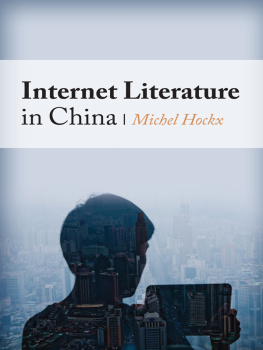The Orphan of Zhao
AND OTHER Yuan Plays
TRANSLATIONS FROM THE ASIAN CLASSICS
TRANSLATIONS FROM THE ASIAN CLASSICS
EDITORIAL BOARD
Wm. Theodore de Bary, Chair
Paul Anderer
Donald Keene
George A. Saliba
Haruo Shirane
Burton Watson
Wei Shang
Columbia University Press
Publishers Since 1893
New York Chichester, West Sussex
cup.columbia.edu
Copyright 2015 Columbia University Press
All rights reserved
E-ISBN 978-0-231-53810-7
Columbia University Press wishes to express its appreciation for assistance given by the Pushkin Fund toward the cost of publishing this book.
Library of Congress Cataloging-in-Publication Data
The orphan of Zhao and other Yuan plays : the earliest known versions / translated and introduced by Stephen H. West and Wilt L. Idema.
pages cm
Includes bibliographical references.
ISBN 978-0-231-16854-0 (cloth : alk. paper)ISBN 978-0-231-53810-7 (electronic)
1. Chinese dramaYuan dynasty, 1260-1368Translations into English. I. West, Stephen H. editor of compilation. II. Idema, W. L. (Wilt L.) editor of compilation.
PL2658.E5O77 2014
895.12'4408dc23
2013048900
A Columbia University Press E-book.
CUP would be pleased to hear about your reading experience with this e-book at .
Cover image: The Captivity of Cai Wenji, 14th15th century. Freer Gallery of Art, Smithsonian Institution, USA. Gift of Charles Lang Freer. Bridgeman Art Library. Cover and book design: Lisa Hamm
CONTENTS
W e would particularly like to acknowledge David Rolstons careful and thorough reading of the manuscript. His suggestions have made this a far better book. We would like to thank the following for their help in preparing the manuscript for publication: Chang Wenbo, Kimberly Harui, and Lucas Wolf; and the following for their help in the production: Jennifer Crewe and Kathryn Schell of Columbia University Press. A fellowship sponsored by the School of Historical Studies, Institute of Advanced Study, Princeton, and the National Endowment for the Humanities allowed Stephen West to work on completing the manuscript.
Stephen H. West, Tempe, Arizona, USA
Wilt L. Idema, Leiden, The Netherlands
W e present in this volume seven Yuan zaju plays based on the earliest editions available. These printed versions date from the period 12501400 when these plays were performed in the fashionable urban theaters of the time. We have selected dramas that have a high level of literary value and represent a typical range of themes found in early urban theater such as revenge, career success and failure, domestic comedy, filial piety, religious conversion, usurpation, and negotiations between the human and spirit worlds, particularly the powerful deities of Mount Tai. Not all these scripts remained in the repertoire when zaju was adopted as court theater by the Ming dynasty (13681644), the main source of surviving zaju of the preceding Mongol Yuan dynasty (12601368), and not all the plays that were performed at the imperial palace were printed by literati editors in the last decades of the Ming when plays were edited for reading. These early scripts therefore are different in provenance, presentation, and audience from the later recensions of zaju texts of the last decades of the Ming. These later recensions, being prepared for educated readers and being more complete in their presentation, offer a fuller read because they have complete dialogue and may incorporate virtuoso texts of other genres into their written body; these later editions also tend to use a language that has been edited to be reminiscent of the high literature of China. As we explain below, it is these later editions that have been considered the canon of early drama from the seventeenth century onward. As such, they have served as the main source of Western-language translations of early Chinese drama until today.
But we would like to take the reader into a different realm, where drama is more closely related to its actual performance and to the pressures of a viewing audience, who must find in those plays reflections (hyperbolic as they may be) of their own lives. We do not claim that the plays we present here are better reads or of higher literary quality than the later literati editions, but we hold firm to the belief that literary texts are first and foremost documents that are subsumed by the society and culture from which they stem and which they represent. And the urban and popular world of the early theater differs dramatically from that of the imperial palace or the literati studio of one, two, or even three centuries later.
This work is presented with the goal of bringing a portion of that early theatrical world to life, valid in its own right. Part of the impulse is to provide a corrective for and a comparison with the overwhelming weight of the high tradition, but we are primarily concerned with trying to represent the qualities that made these dramas popular enough in their own day to be committed to print for mass circulation. In cases where it is possible, we have also provided later editions of these texts from the imperial court or the scholars studio to allow the reader to assess not only the differences as literature but also the differences in the mental and social worlds they represent.
Some background will be helpful to first-time readers of early Chinese drama, and we point the reader to the preface of our prior work, Monks, Bandits, Lovers, and Immortals, where we have discussed the historical background, staging, acting troupes, and formal features of early northern and southern drama.
| SHANG | ca. 14601045 BC |
| ZHOU | 1045256 BC |
| Western Zhou | 1111771 BC |
| Eastern Zhou | 770256 BC |
| Spring and Autumn | 722421 BC |
| Warring States | 480221 BC |
| QIN | 221207 BC |
| HAN | 202 BCAD 220 |
| Western Han | 202 BCAD 9 |
| Eastern Han | 25220 |
| THREE KINGDOMS |
| Wei | 220265 |
| Wu | 220280 |
| Shu-Han | 221263 |
| WESTERN JIN | 266316 |
| EASTERN JIN | 317420 |
| NORTHERN AND SOUTHERN DYNASTIES | 386589 |
| Northern | 386581 |
| Northern Wei | 386534 |
| Eastern Wei | 534550 |
| Northern Qi | 550577 |
| Western Wei | 535557 |
| Northern Zhou | 557581 |
| Southern | 420589 |
| Song | 420479 |
| Qi | 479502 |
| Liang | 502557 |
| Chen | 557589 |
| SUI | 581618 |
| TANG | 618907 |
| FIVE DYNASTIES | 907960 |
| Later Liang | 907923 |
| Later Tang | 923936 |
| Later Jin | 936947 |
| Later Han | 947950 |

